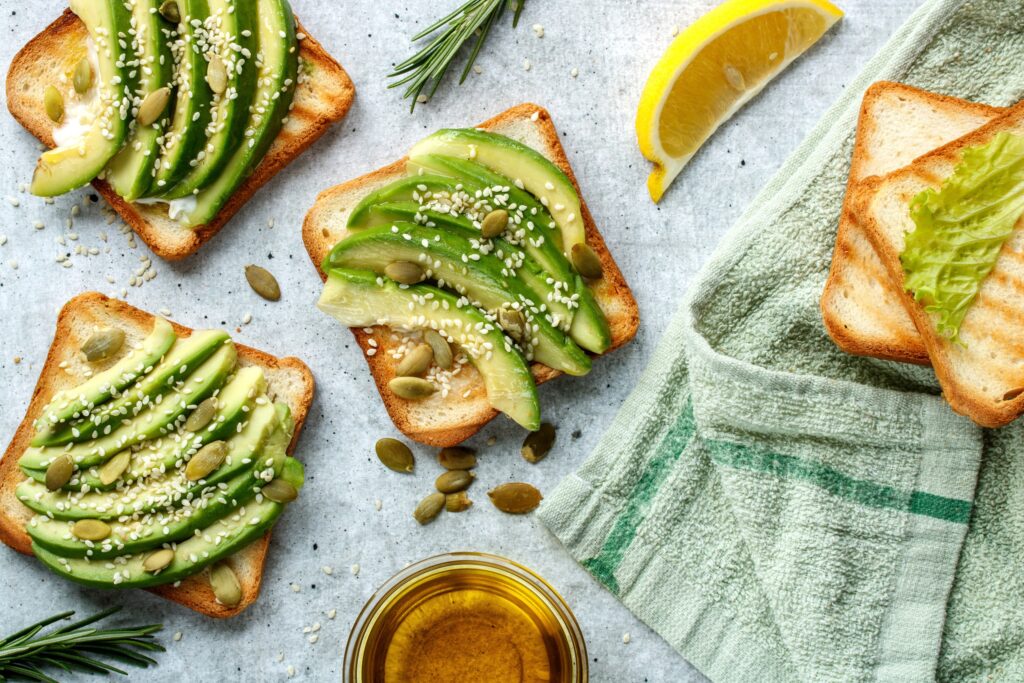Fats are good for us. Fats are bad for us. The argument rages on. Is there a balanced perspective to the topic of fats and their impact on human health?
Are you curious about the role fats play in our diet? Do you wonder whether fats are friends or foes? Let’s dive into the world of fats! In this post, I’ll discuss what fats are, the different types of fats, the essential fats our body needs, and the importance of balancing omega-3 and omega-6 fatty acids. I’ll also explore the ongoing debate on saturated fats and their potential benefits.
What Are Fats?
Fats, also known as lipids, are a vital macronutrient that our bodies need for energy, absorption of vitamins, and various bodily functions. Fats help us feel satiated, provide cushioning for our organs, and assist in regulating our body temperature. But did you know that not all fats are created equal? Let’s explore the different types of fats and their impact on our health.
Unsaturated Fats: Healthy Fats for a Balanced Diet
Unsaturated fats, found in plant-based oils, nuts, seeds, and fatty fish, have one or more double bonds in their chemical structure. There are two types of unsaturated fats:

- Monounsaturated Fats: Foods rich in monounsaturated fats, such as olive oil, avocados, and almonds, can help lower bad cholesterol levels and reduce the risk of heart disease. Do you include monounsaturated fats in your diet?
- Polyunsaturated Fats: Some examples of polyunsaturated fats are omega-3 and omega-6 fatty acids, found in sources like walnuts, flaxseeds, and fatty fish. Consuming polyunsaturated fats can improve heart health, reduce inflammation, and support brain function. How do you incorporate polyunsaturated fats into your meals?
Saturated Fats: The Ongoing Debate
Saturated fats, found in animal products like butter, cheese, and fatty meats, have all their carbon atoms bonded to hydrogen atoms, making them solid at room temperature. While saturated fats have long been considered “bad” fats, recent research suggests that their impact on health may be more complex than previously thought.
Some studies show that moderate consumption of saturated fats may not significantly impact heart disease risk. However, it’s essential to consume high-quality saturated fats, such as grass-fed meats, dairy products, and coconut oil, in moderation, while maintaining a balanced diet that includes unsaturated fats.
The debate on saturated fats and their impact on health is still ongoing, and new research continues to emerge.
Some experts argue that saturated fats aren’t as harmful as they were once believed to be, and that they might even have health benefits, such as providing energy and supporting hormone production. However, the consensus on this topic has not yet been established.
On the other hand, overconsumption of unsaturated fats, especially from seed oils, has raised concerns among some nutritionists. Excessive consumption of polyunsaturated fats, particularly omega-6 fatty acids, can lead to an imbalance in the omega-3 to omega-6 ratio in our diet, which might contribute to inflammation and other health issues.
When it comes to fats, moderation and balance are key. It’s essential to focus on consuming a variety of healthy fats, including saturated fats from high-quality sources like grass-fed meats, dairy products, and coconut oil, as well as unsaturated fats from sources like olive oil, avocados, nuts, and fatty fish.
Ultimately, the quality of the fats we consume and the balance of different types of fats in our diet are vital factors in supporting our overall health. It’s important to continue learning from new research and adjust our dietary choices accordingly.
Trans Fats: The Real Bad Guys

Found in some processed and packaged foods, trans fats are created through the process of hydrogenation, which prolongs the shelf life of products. These fats raise bad cholesterol levels while lowering good cholesterol, increasing the risk of heart disease and other health problems. Do you check food labels to avoid trans fats?
The Essential Fats: Omega-3 and Omega-6 Fatty Acids
Omega-3 and omega-6 fatty acids are essential fats that our bodies cannot produce on their own, so it’s crucial to obtain them through our diet. These fats are vital for brain function, inflammation regulation, and heart health. Are you getting enough essential fats in your diet?

Balancing Omega-3 and Omega-6 Fatty Acids
An essential aspect of a healthy diet is balancing omega-3 and omega-6 fatty acid consumption. A diet with a high omega-6 to omega-3 ratio can contribute to inflammation and other health issues. Aim for a balanced intake by including a variety of nuts, seeds, and fatty fish in your diet. How do you maintain the right balance of essential fatty acids?
The Importance of Including Healthy Fats in Our Diet
Healthy fats, including both saturated and unsaturated fats, play a crucial role in maintaining overall health and well-being. Here are some key reasons why including a variety of healthy fats in your diet is essential for optimal health.
- Heart Health: Consuming healthy fats can help improve heart health. For example, monounsaturated fats found in foods like olive oil and avocados can help reduce LDL levels and increase HDL levels, lowering the risk of cardiovascular diseases. Saturated fats, when consumed in moderation and from high-quality sources, can also be part of a balanced diet without posing significant risks to heart health.
- Brain Health: Fats are crucial for brain function and development, particularly omega-3 fatty acids found in fatty fish like salmon, mackerel, and sardines. These fats help support cognitive function, memory, and mood regulation.
- Hormone Production: Fats, including saturated fats, play a vital role in hormone production. They serve as building blocks for hormones and help maintain hormonal balance in the body, which is essential for various bodily functions and overall well-being.
- Energy Source: Fats provide a concentrated source of energy that the body can use, especially during periods of low carbohydrate intake. Consuming healthy fats can help you stay energized and maintain stable blood sugar levels.
- Improved Taste and Satiety: Healthy fats add flavor and richness to meals, making them more enjoyable and satisfying. Including fats in your meals can help you feel fuller for longer periods, reducing the likelihood of overeating or snacking on unhealthy foods.
Nutrient Absorption
Additionally, fats play a crucial role in the absorption of essential nutrients, further highlighting their importance in your diet. Certain vitamins, known as fat-soluble vitamins, require fat for proper absorption in the body. These vitamins include:
- Vitamin A: Essential for healthy vision, immune function, and cell growth.
- Vitamin D: Crucial for calcium absorption, bone health, and immune function.
- Vitamin E: A powerful antioxidant that helps protect cells from damage.
- Vitamin K: Necessary for blood clotting and bone health.
Without adequate fat intake, the absorption of these essential vitamins can be significantly hindered, leading to potential deficiencies and related health issues.
Which Fats Should You Eat?
To include a variety of healthy fats in your diet, consider the following sources:
Saturated Fats: Sources such as grass-fed butter, ghee, coconut oil, and fatty cuts of meat from pasture-raised animals can provide high-quality saturated fats.
Monounsaturated Fats: Foods like avocados, olive oil, almonds, and macadamia nuts are rich in heart-healthy monounsaturated fats.
Omega-3 Fatty Acids: Fatty fish, flaxseeds, chia seeds, and walnuts are excellent sources of omega-3 fatty acids, which support brain health and reduce inflammation.
Tips for Optimising Fat Consumption
Now that we know the different types of fats and their impact on our health, let’s explore some tips on how to optimise our fat consumption:
- Embrace Healthy Fats: Incorporate a variety of healthy fats into your diet, including unsaturated fats from sources like avocados, nuts, seeds, and fatty fish, as well as high-quality saturated fats from grass-fed meats, dairy products, and coconut oil.
- Cook with Healthy Oils and Fats: When cooking, opt for oils high in monounsaturated and polyunsaturated fats, such as olive, canola, or avocado oil. Also, consider using good saturated fats like ghee, coconut oil, and butter.

- Prioritise High-Quality Saturated Fats: Focus on consuming high-quality saturated fats from sources like grass-fed meats, dairy products, and coconut oil, while maintaining a balanced diet that includes unsaturated fats.
- Avoid Trans Fats: Read food labels carefully and avoid products with partially hydrogenated oils or trans fats. Are you aware of the hidden trans fats in some of your favorite packaged foods?
- Balance Your Omega-3 and Omega-6 Intake: Aim for a balanced consumption of omega-3 and omega-6 fatty acids by including a variety of nuts, seeds, and fatty fish in your diet.
- Snack Smart: Instead of reaching for unhealthy, high-fat snacks, opt for healthier options like some wholemeal crackers with a nut butter, yogurt with fresh fruit, or hummus and veggie sticks.

- Don’t Fear Fat: This is important! Remember that fat is an essential nutrient, and it’s important to consume an appropriate amount for overall health. Embrace healthy fats and enjoy them in moderation.
The Fat Wrap-up
The key is to focus on a diverse, well-rounded diet with plenty of whole, unprocessed foods for optimal health. By embracing a balanced perspective and approach to fat consumption, including both unsaturated fats and high-quality saturated fats, you can support your overall health and well-being.
SHARE

Madhavi Shilpi
Nutritionist
Prediabetes Coach
Related
Proteins: Building Blocks for a Stronger You
Are you curious about the role proteins play in our diet? Do you wonder…
Carbohydrates: Fuel For Your Body
Do you often wonder about the role carbohydrates play in our diet? Did…
Probiotic-rich foods: 10 health benefits
Probiotics are live microorganisms that are beneficial for our health when…
Nut Butters: Are they healthy for you?
Nut butters are finding a fervent following amongst health food enthusiasts…
Which diet should you follow?
There are so many diets out there! How do you figure out which diet you…
Nutrient focus: Vitamin D
Vitamin D: The Sunshine Vitamin and its Importance to Your Health Vitamin D is…
What is Prediabetes?
Have you been diagnosed with Prediabetes? Are you wondering what it actually…







